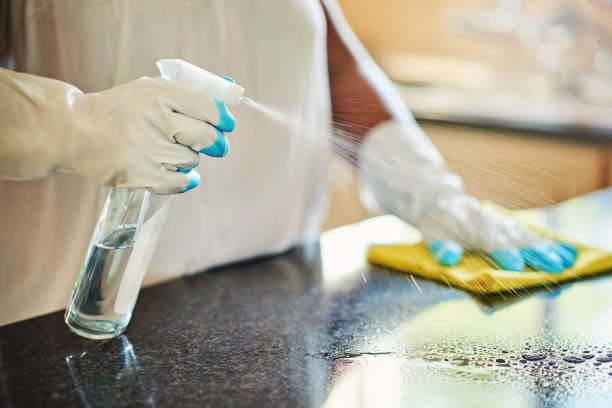Personal cleanliness is essential for preventing illness because it reduces the spread of infections and promotes general health and wellbeing. The significance of personal cleanliness in preventing disease is broken down as follows:
- Reduction of Pathogen Transmission: The most common ways for pathogens to spread are through physical contact with contaminated surfaces or airborne droplets from coughs and sneezes. Pathogens include bacteria, viruses, fungi, and parasites. Maintaining proper personal hygiene, such washing your hands frequently with soap and water, helps to eliminate harmful germs and lowers the chance of infecting both you and other people.
- Foodborne illness prevention: Keeping kitchen surfaces clean, washing hands before handling food, and cooking food properly are all important food preparation hygiene practices that help stop the spread of pathogens including salmonella, E. coli, and norovirus.
- Control of Respiratory diseases: When an infected individual coughs, sneezes, or speaks, respiratory droplets can spread respiratory diseases, such as the common cold, influenza, and COVID-19. The transmission of respiratory illnesses can be halted by practicing proper respiratory hygiene, which includes using a mask when necessary and covering one’s mouth and nose when coughing or sneezing with a tissue or elbow.
- Preventing Skin diseases: When pathogenic bacteria penetrate the skin through wounds, scratches, or breaches in the skin, skin diseases such as cellulitis, impetigo, and fungal infections can arise. Skin infections can be avoided by maintaining proper personal hygiene, which includes keeping the skin dry and clean, not sharing towels or razors, and treating cuts and wounds as promptly.
- Promotion of Dental Health: Cavities, gum disease, and foul breath are just a few of the oral health issues that can result from poor dental care. In addition to frequent dental checkups, regular brushing and flossing help remove plaque and germs from the teeth and gums, lowering the risk of dental infections and other oral health problems.
- Improvement of General Health: Consistent grooming, regular bathing, and wearing clean clothes are examples of good personal hygiene practices that promote general physical and mental health. In addition to halting the spread of illness, self-care and hygiene also increase confidence and self-esteem.
- Protection of Vulnerable Populations: Some people are more prone to infection than others, including the elderly, small children, expectant mothers, and people with compromised immune systems. Maintaining proper personal cleanliness lowers the chance of spreading infectious agents to vulnerable groups, protecting them in addition to oneself.
A key component of disease prevention is maintaining one’s health and well-being through reducing the spread of infections through diverse behaviors known as personal hygiene. People can actively prevent infectious diseases in themselves and others by integrating proper hygiene practices into daily activities.
It is impossible to overstate how crucial good personal cleanliness is for everyone’s health and welfare. The following are some significant facts that highlight its importance:
- Disease Prevention: Keeping the spread of infectious diseases at bay requires good personal hygiene habits, such as frequent handwashing, bathing, and dental care. Hygiene lowers the danger of catching and spreading diseases by eliminating pathogenic germs from the body and environment, protecting public health.
- Improved Well-Being: Having proper personal hygiene has a positive impact on one’s physical, mental, and emotional health. Maintaining cleanliness helps one feel confident, comfortable, and fresh, which enhances one’s self-worth and self-image. Keeping up with hygiene standards can also lessen discomfort, stop offensive smells, and reduce the possibility of infections or skin irritations.
- Better Social Interactions: Establishing positive social interactions and relationships requires practicing excellent hygiene. Those who keep themselves clean are more likely to make other people feel relaxed and at ease. In addition to being courteous of others, maintaining good hygiene, a clean appearance, and well-groomed clothing are necessary for making a good first impression in social and professional contexts.
- Prevention of Healthcare Burdens: By minimizing the possibility of preventable illnesses, maintaining good personal hygiene can assist lessen the strain on healthcare systems. Hygiene helps to reduce the spread of infectious diseases, which in turn helps to reduce healthcare expenses, absenteeism from work or school, and hospitalizations. These outcomes eventually help people and society as a whole.
- Protection of Vulnerable Populations: People with weakened immune systems, children, the elderly, and pregnant women are among the vulnerable populations that are most at risk for infection. Maintaining proper personal hygiene practices is essential to protecting these communities from disease and avoiding the spread of germs that could seriously endanger their health.
- Promotion of Public Health: Upholding personal cleanliness standards in communities is essential to preserving public health and hygiene standards. Individuals can help prevent the spread of disease and create a healthier environment for everyone by adopting personal hygiene practices, such as safe food handling, sanitation, and waste disposal.
- Long-Term Health Benefits: Developing and preserving proper personal hygiene practices at a young age may have positive effects on one’s health in the future. Regular exercise, a well-balanced diet, and enough sleep are instances of consistent hygiene practices that promote lifespan and general health by lowering the risk of chronic illnesses and enhancing quality of life.
There are several advantages to maintaining proper personal hygiene for both individuals and society in general. The following are some main advantages:
- Disease Prevention: Reducing the risk of contracting an illness is one of the main advantages of good personal hygiene. By eliminating dangerous bacteria, viruses, and other pathogens from the body by regular handwashing, bathing, and dental care, the risk of diseases like colds, the flu, gastrointestinal disorders, and skin infections is decreased.
- Better Health: Maintaining proper personal hygiene practices is beneficial to one’s general physical health and wellbeing. People can have better health outcomes, fewer sick days, and a higher quality of life by lowering their risk of disease and infections.
- Improved Mental Well-Being: Maintaining proper personal hygiene can benefit one’s self-esteem and mental health. Being tidy and well-groomed can improve one’s emotional health, self-worth, and confidence, which can increase happiness and provide a more optimistic view on life.
- Social acceptability: Having pleasant relationships with people and upholding proper personal cleanliness are prerequisites for social acceptability. People who portray themselves in a clean and hygienic manner tend to be more comfortable and approachable, which fosters greater social relationships and chances.
- Reduced Smells: Maintaining good hygiene helps prevent bad breath, body smell, and offensive smells brought on by perspiration, germs, and other body secretions. This reduces the possibility of shame and increases social contacts in addition to improving personal comfort.
- Preventing Skin Conditions: Consistent bathing and skincare practices can aid in the prevention of a number of skin conditions, such as dermatitis, fungal infections, acne, and lice on the body. Maintaining clean, moisturized skin lowers the chance of illness and irritation while also promoting skin health.
- Protection of Vulnerable Populations: Those with weakened immune systems, the elderly, and newborns should pay special attention to maintaining proper personal hygiene. Hygiene habits assist shield these people from disease and consequences by reducing the spread of germs and pathogens.
- Work and School Performance: Higher performance at work and school is associated with good personal cleanliness. Good hygiene reduces the risk of illness for both workers and students, which lowers absenteeism and boosts output and academic performance.
- Healthcare Cost Savings: Good personal hygiene lowers medical expenses for people, healthcare systems, and society at large by preventing illnesses and reducing the need for medical care. Reduced medical costs and better economic results come from fewer hospital stays, doctor visits, and prescription drug costs.
- Environmental Health: By lowering pollutants and stopping the spread of disease-causing chemicals in water, air, and soil, good hygiene practices—such as efficient waste disposal and sanitation—contribute to environmental health.
Personal hygiene has numerous benefits that go far beyond simple cleanliness. People can improve their health, well-being, social acceptance, and general quality of life while also preventing disease and promoting public health by establishing and maintaining appropriate hygiene practices.






